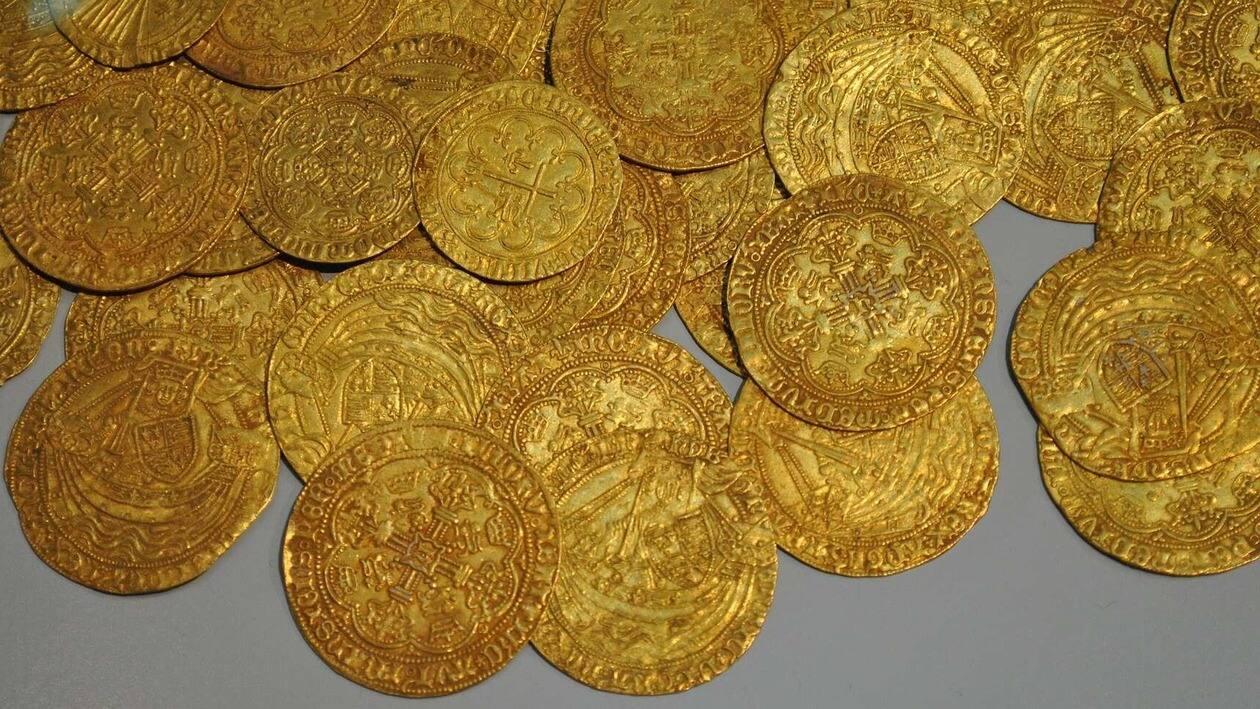Gold prices have slumped to their lowest point in over a month prompting many people to consider investing in gold coins. Due to its religious connotation, there is an affinity for gold in every country, especially India.
Many cultural customs in this country are incomplete without expending some money on gold ingots and coins during festivals. Now that gold is cheap, should one invest in gold coins as an effective hedge against inflation in the future?
The answer is both “Yes” and “No” depending on how you look at it. Undoubtedly, you must include gold up to 10-15 per cent in your investment portfolio. However, how you invest in gold depends on how you perceive your investments and your understanding of financial goals.
Buying gold coins
You can always go to a reputed gold jewellery store and buy gold coins in various denominations and sizes. This means that you can buy gold coins weighing between one and 100 grams. Some stores even sell 0.25 grams of gold, thus, allowing you to pay for small amounts of gold in case you invest in them every month.
Whether you have bought gold for emotional reasons or simply as a religious custom, buying 24k of 99.5 per cent purity is possible. Moreover, you are saved from paying hefty making charges to the tune of 20-25 per cent as gold minting incurs minimum charges. However, you do not get to buy gold coins at the rates mentioned online though you save a lot on making charges. This also explains why many people regard gold coins as pure investments.
You need not spend a dime extra to maintain gold coins because gold does not necessitate much maintenance. You can store and save these coins for decades without worrying about waste or decay. However, you must take care of ways to keep this gold safe which may require you to incur added storage costs.
It is not difficult to buy and sell gold coins, unlike gold jewellery which is cumbersome and may fetch lower prices due to adulteration. This highlights gold coins as a safer investment option.
On and offs of buying gold coins
Many millennials have started buying gold coins apart from parking their funds in equity, debt and real estate. However, does investing in gold coins fetch the desired earnings? Are there any pros and cons of putting a part of your money in gold coins?
Gold coins continued to be the favourite till the government introduced the concept of gold exchange-traded funds (ETFs) and sovereign gold bonds (SGBs). Though the demand for gold coins has not abated, more investors are showing interest in gold ETFs and SGBs to ensure timely liquidity and earn returns over the period.
Based on historical gold returns, one may argue that gold does not lend the compounding effect. This explains higher returns from equities in the long run. However, diversification is important, and hence, a decent foray into gold is advised. Apart, gold serves as an effective hedge against inflation, which explains its inclusion and presence in many portfolios.
Income tax calculations
To the Income Tax Department, the shine and sheen of gold do not matter. According to the Income Tax Act 1961, gold investments are classified as physical gold, digital gold and paper gold for the purpose of taxation.
The taxation of gold coins depends on how long you had held onto your assets. This means that if you sell the gold coins within three years of purchase, your earnings would be realized as short-term capital gains and would be taxed as per the existing income tax slab. However, earnings from m held beyond three years would qualify as long-term capital gains and are taxed at 20.80 per cent including cess with the indexation benefit.
The same is true for gold ETFs too which are treated as digital gold and are taxed like gold coins.
Paper gold invites a different kind of taxation. The interest income of 2.5 per cent per annum from SGBs is added to the investor's taxable income and taxed as per the applicable income tax slab. The earnings from SGBs, if held till maturity, are tax-free. However, the redemption of SGBs before the maturity period will cause your earnings to be taxed under the prevailing tax slab rates.
